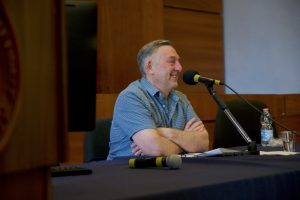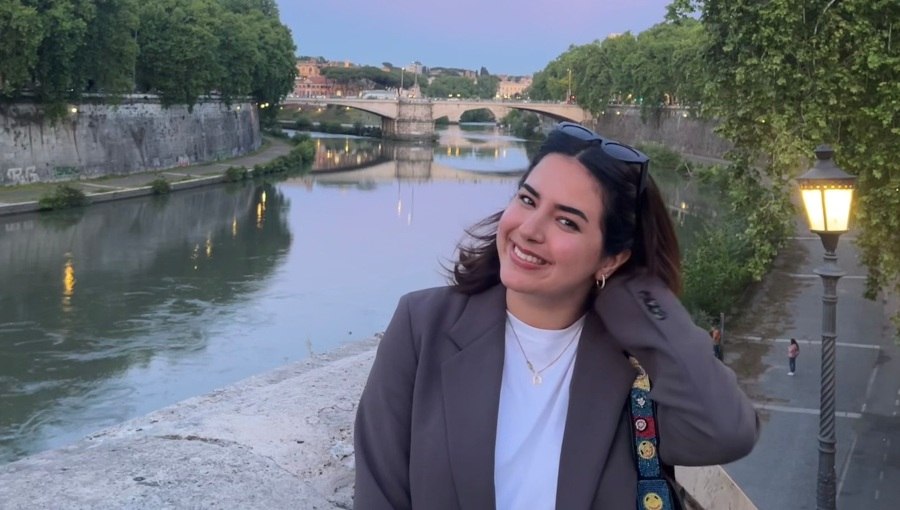John Cabot University Hosts Rome Nietzsche Workshop
At the “Rome Nietzsche Workshop” held at John Cabot University on March 30th and 31st, ten scholars discussed their current research on Nietzsche’s ethics and criticisms of morality, his conceptions of reality, emotions, the soul, and “will to power,” and his relations to Hume, Kant, and Schopenhauer.
Christopher Janaway (Southampton) opened the workshop with a paper (“Realities, Affect-Interpretations, and Nietzsche’s ‘Improvers’ of Humanity”) arguing that Nietzsche conceives of affects as means of cognizing values (albeit not moral values) that are “real” or objective for us. The following session, on Robert Guay (Binghampton)’s “What’s the Damage? Nietzsche on the Harms of Morality,” considered Guay’s claim that Nietzsche considers morality “harmful” not just to individuals or “higher types,” but to the possible self-understanding of individuals and collectives. In “Nietzsche’s Moral Methodology,” Paul Katsafanas (Boston) examined Nietzsche’s objections to foundationalist and coherentist moral philosophies, and argued that Nietzsche’s own method is a kind of comparative criticism of moral codes. In the following session, Tom Bailey (John Cabot) argued that Nietzsche’s conception of reality as “will to power” is neither metaphysical nor naturalist, but rather transcendental idealist in the Kantian sense (“Will to Power: Nietzsche’s Transcendental Idealism”). Tsarina Doyle (Galway)’s “Against Metaphysical Neutrality: Nietzsche’s Metaphysics of the Will to Power in Beyond Good and Evil, 36” then argued that this conception is better understood in terms of causal dispositions, and discussed the implications of this for understanding human action.
The second day of the workshop began with a session on Peter Kail’s (Oxford) paper, “Nietzsche, Hume, and the Commonwealth of the Soul,” which compared Nietzsche’s and Hume’s naturalist conceptions of the self. Anthony Jensen (Providence) then explored the ideas of “will” developed by philosophers that Nietzsche read and engaged with, Eduard von Hartmann, Philip Mainländer, and Julius Bahnsen. The following session, on Christopher Fowles’ (Oxford) “The ‘Heart of Flesh’: Nietzsche on Affects and the Interpretation of the Body,” examined the meaning and coherence of Nietzsche’s remarks about “affects.” Matthew Meyer’s (Scranton) “The Dialectics of Nietzsche’s Metaphilosophies” argued that Nietzsche’s conception of philosophy developed over time, and particularly in the “free spirit” works of 1876-1882. The workshop concluded with a discussion of Paul Loeb’s (Puget Sound) “Nietzsche’s Critique of Kant’s Priestly Philosophy,” which examined Nietzsche’s notion of “priests” and its implications for understanding his criticisms of Kant.
The workshop was organized by Professor Tom Bailey. Prof. Bailey’s research focuses on ethics and political philosophy, and particularly on Kant’s ethics, Nietzsche’s philosophy, the idea of “cosmopolitanism,” and contemporary debates over the place of religion in politics. Prof. Bailey teaches courses in political philosophy, ethics and business ethics, introductory, modern, and contemporary philosophy, the philosophy of art, the philosophy of love, and research methods in the humanities.







